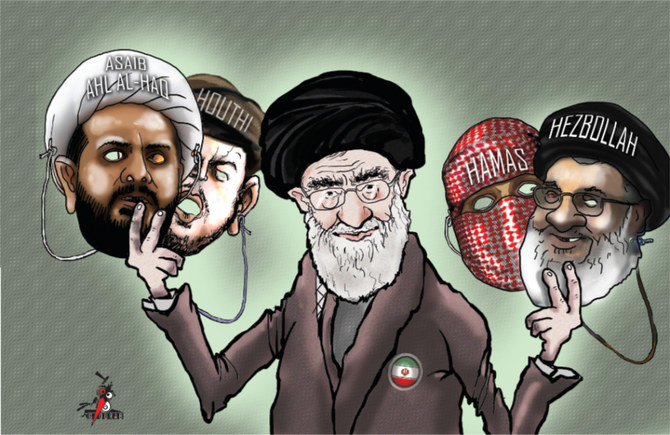د. ماجد رفي زاده: النتائج السلبية لتطبيع العلاقات مع إيران
The negative consequences of normalizing ties with Iran
Dr. Majid Rafizadeh/April 08/2022
Any deal between Iran and the P5+1 world powers on the former’s nuclear program should not lead to the belief that normalizing political relations with the Tehran regime is safe and secure. This is due to the fact that the Iranian government views international agreements as transitory and a means to an end, with the ultimate goal of the theocratic establishment being the fulfillment of its ideological and revolutionary principles and ideals.
In other words, it is extremely unlikely that any deal between the world powers and the Iranian regime would change the core, underlying policies of the Islamic Republic. A clear example is the previous nuclear deal. Some politicians, scholars and policy analysts hoped that Iran would change its behavior after the Joint Comprehensive Plan of Action was struck in 2015 and act as a constructive and modern nation state. However, we ought to be cautious of conflating and intertwining our hopes with the sociopolitical reality and underlying character of the Iranian regime.
The Tehran government’s fortunes shifted in 2015 after the signing of the nuclear agreement, which led to the lifting of global sanctions. As a result, the Islamic Republic became the recipient of significant geopolitical, strategic and economic opportunities and rewards from the global powers.
Iran’s leaders could have capitalized on these opportunities in two different ways. The first and most rational path would have been to focus their new status on the global stage — their enhanced legitimacy and the additional revenues they received — toward investing in improving the living standards of its citizens, advancing the nation’s technological landscapes, avoiding interference in other countries’ affairs, refraining from the use of provocative and incendiary speeches against other nations, refraining from intimidating other countries by their military power, and instead trying to be a respected nation state in the region and on the global arena.
Building ties with the Iranian regime will not necessarily make a foreign state immune from its malign and destructive policies.
But the Iranian leaders took a different path. Their modus operandi, which was using their elevated status — as well as the economic opportunities offered by the nuclear agreement and sanctions relief — to project their military power and fund more proxies in the region. The Iranian regime chose to provoke other nations with its ballistic missile capabilities, issue confrontational, incendiary and irrational statements to antagonize other countries, to be an ideological and revolutionary state with the goal of being treated as the regional superpower at any cost, to impose its Shiite doctrine on other nations, and act as an ideological cause. And the Islamic Republic decided to more forcefully interfere in the domestic affairs of other nations, including Yemen, Syria, Lebanon and Iraq.
In addition, the Iranian regime’s military adventurism escalated, with the region witnessing more Houthi rocket attacks on civilian targets in Saudi Arabia and the deployment of thousands of Hezbollah foot soldiers in Syria. The EU, which also normalized relations with the Iranian regime, faced similar negative consequences. The bloc’s member states were among the main targets of Iran’s terrorist plots. The Iranian regime was implicated in a series of assassinations, the seizure of European hostages and other hostile acts across the continent, some successful, others not. European officials were able to foil a terrorist attack targeting a large “Free Iran” convention in Paris in 2018, which was attended by many high-level speakers. Iranian diplomat Assadollah Assadi was last year sentenced to 20 years in prison in Belgium for his role in the bomb plot.
This shows that building ties with the Iranian regime will not necessarily make a foreign state immune from its malign and destructive policies. The EU would do well to recall what Winston Churchill famously said about those that appease a rogue state: “Each one hopes that if he feeds the crocodile enough, the crocodile will eat him last. All of them hope that the storm will pass before their turn comes to be devoured. But I fear — I fear greatly — the storm will not pass.”
In a nutshell, governments ought to be cautious of swiftly normalizing political ties with the Iranian regime. International agreements with the Islamic Republic do not change its destructive behavior or revolutionary principles. Instead, deals with Tehran seem to only encourage the regime to more forcefully interfere in the domestic affairs of other nations and to reassert its regional preeminence and hegemonic ambitions.
• Dr. Majid Rafizadeh is a Harvard-educated Iranian-American political scientist. Twitter: @Dr_Rafizadeh






















